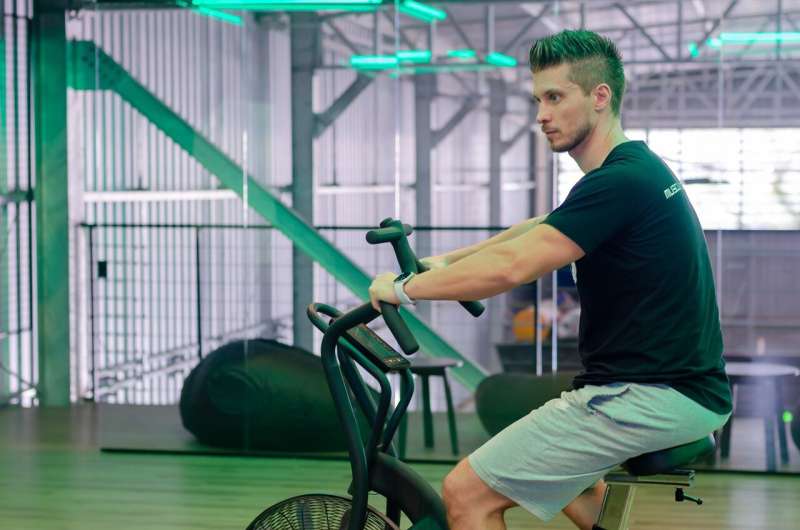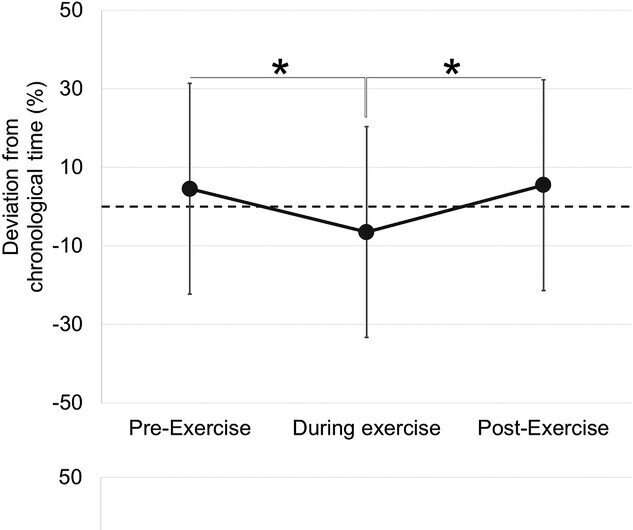This article has been reviewed according to Science X's editorial process and policies. Editors have highlighted the following attributes while ensuring the content's credibility:
fact-checked
peer-reviewed publication
trusted source
proofread
Study shows exercising slows our perception of time

Published in the journal Brain and Behavior, results of a new study show for the first time that individuals tend to experience time as moving slower when they are exercising compared to when they are resting or after completing their exercise.
Professor Andrew Edwards, head of the School of Psychology and Life Sciences at Canterbury Christ Church University, led the work with Dr. Stein Menting and Associate Professor Marije Elferink-Gemser both of the University of Groningen and with Professor Florentina Hettinga of Northumbria University. The team identified that not only was the perception of time slowed down during exercise, but that this effect was not further impacted by the presence of fellow competitors.
Participants performed a standardized time perception task before, during and after exercise and the cycling trials included different conditions: solo trials, trials with a passive companion avatar, and competitive trials against an active opponent avatar.
Professor Edwards said, "Our findings have important implications for healthy exercise choices, enjoyment levels and also for how we use this information to optimize performance."
"The study, however, comes with several caveats," he added. "It's still unclear whether the results are generalizable. While the participants weren't professional cyclists, they were in good physical shape, which isn't true of everybody. The sample size of 33 people offer an intriguing first glimpse into how our perception of time can be warped—and perhaps a clue as to how to take things to the next level while exercising."

"The main strands of the work are to see how we can motivate people to engage with exercise, avoid/mitigate negative associations with time appearing to move slowly and perhaps see if we can use this apparent slowing of time to our advantage."
"This study would not have been possible with the extensive contributions of my colleagues and the partnership between our respective universities." Professor Edwards said.
The study participants completed the series of 4-kilometer cycling trials on a Velotron cycling ergometer with large screens simulating race course conditions both with and without competitors. The group's next steps are to extrapolate these findings to other groups of people and to examine possible impacts on health and performance.
More information: Andrew Mark Edwards et al, The perception of time is slowed in response to exercise, an effect not further compounded by competitors: behavioral implications for exercise and health, Brain and Behavior (2024). DOI: 10.1002/brb3.3471





















